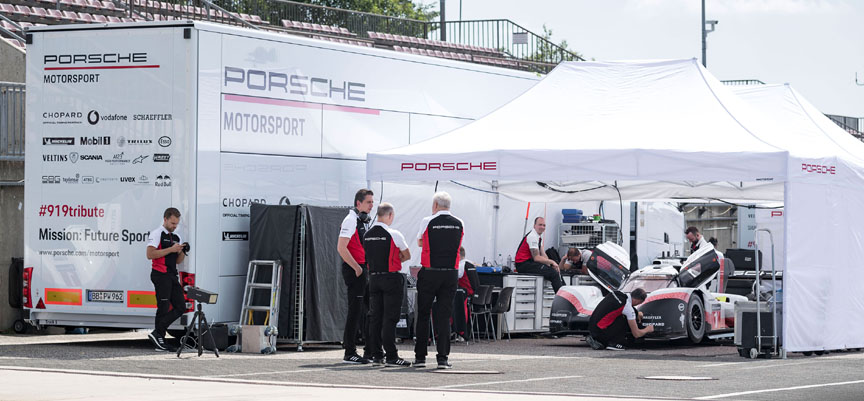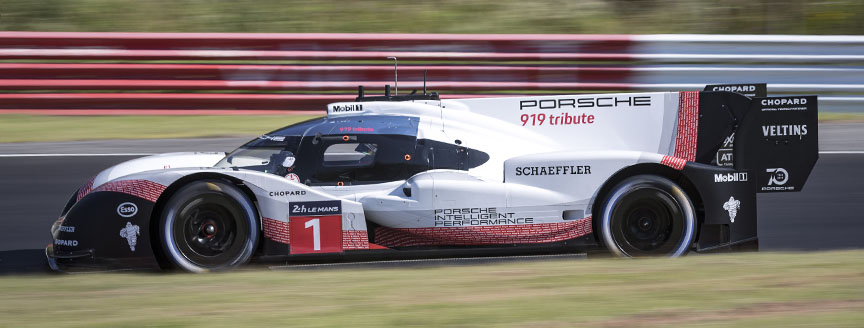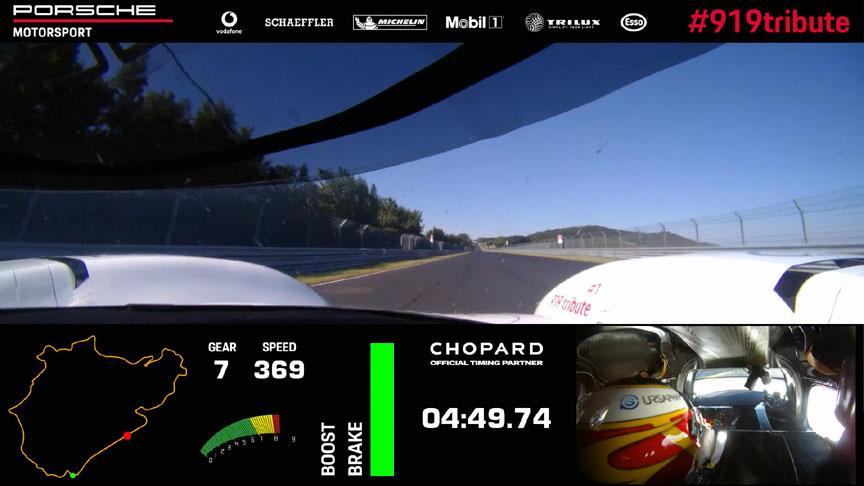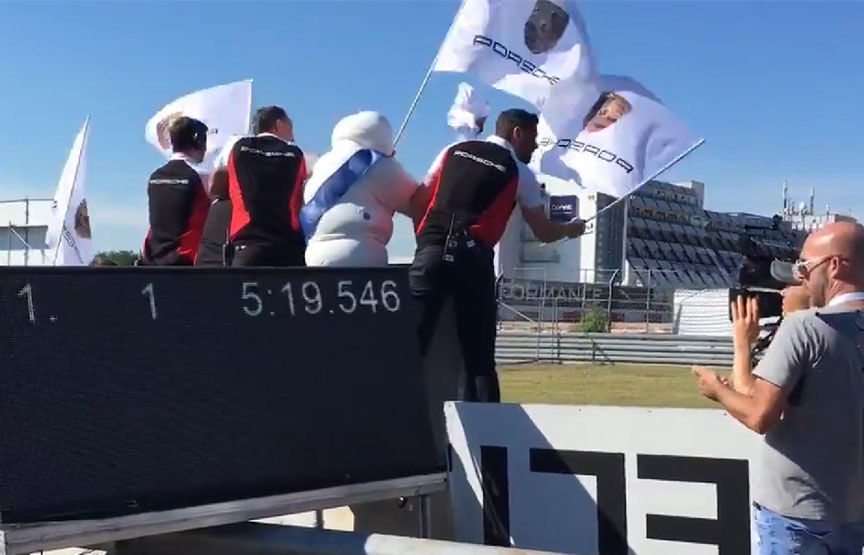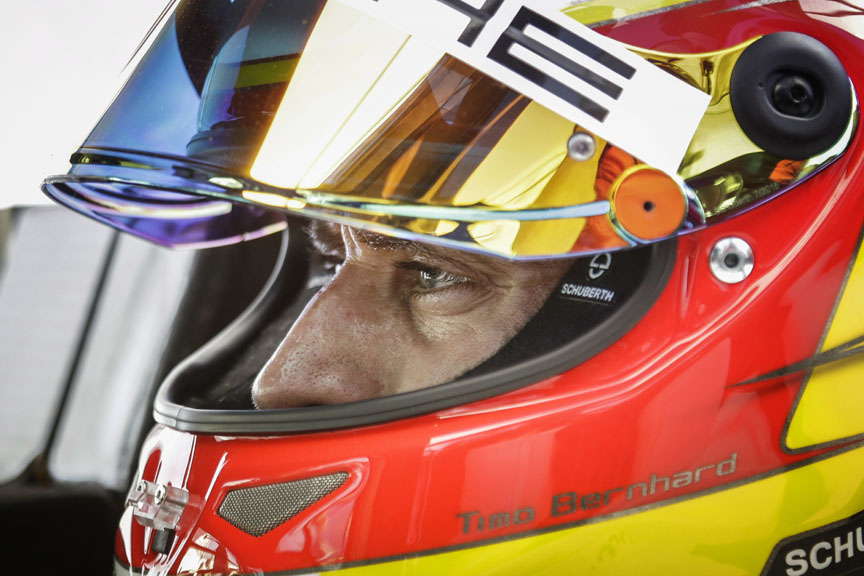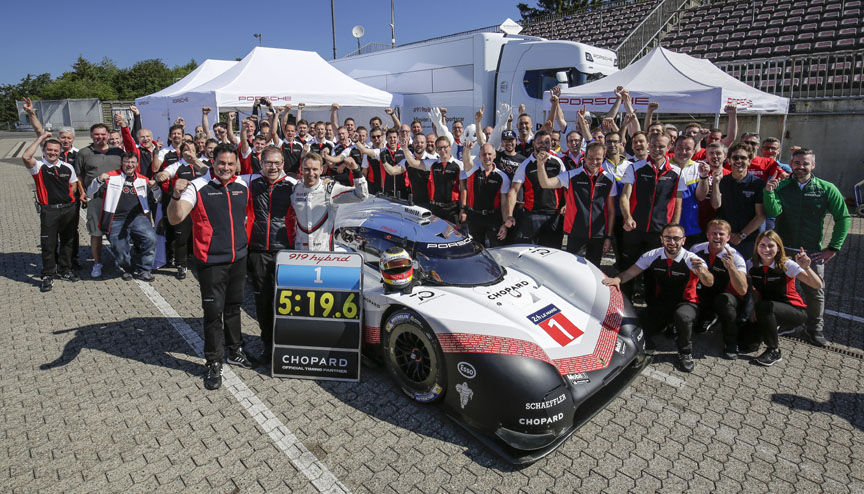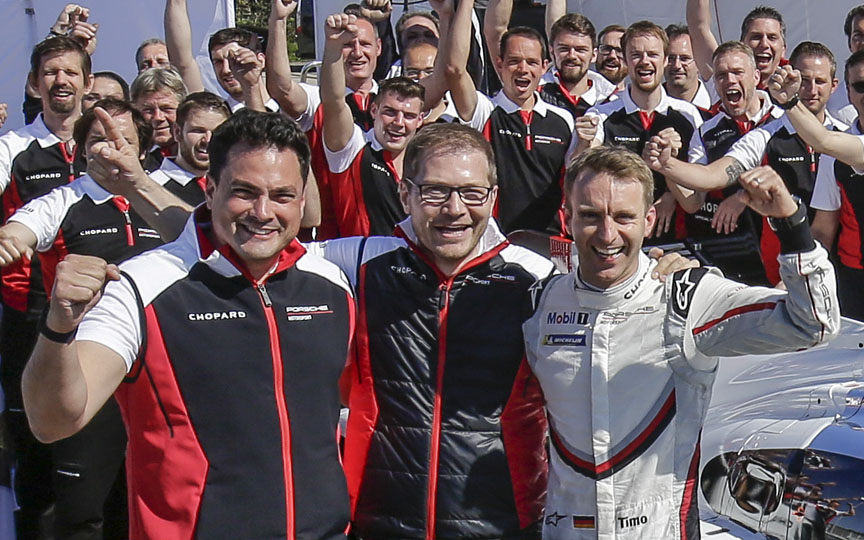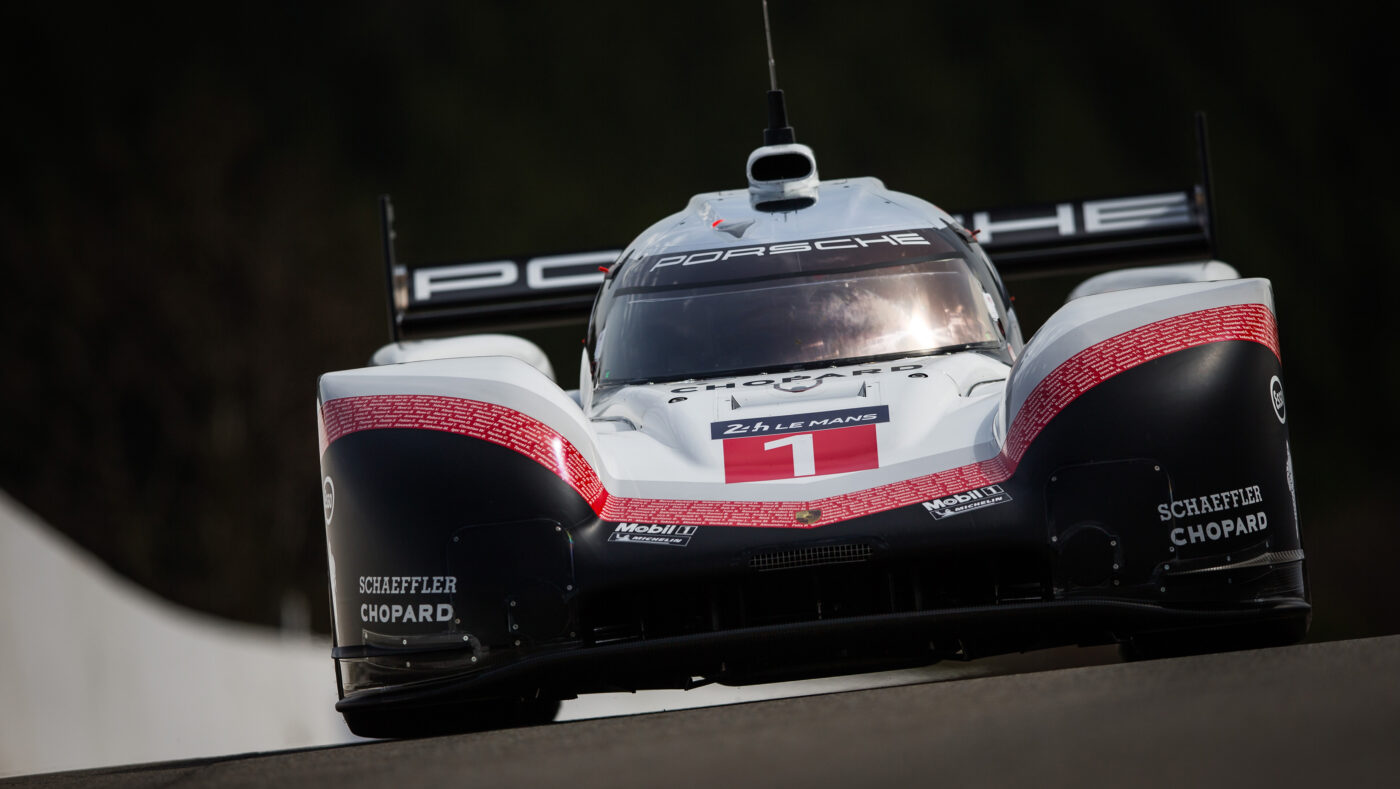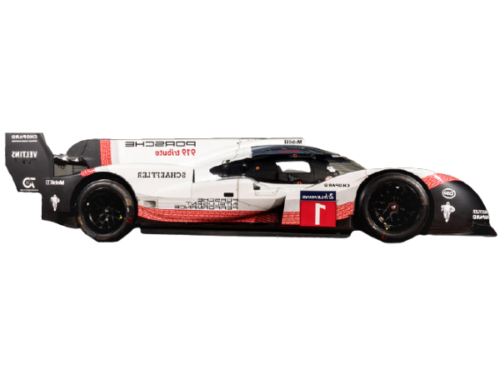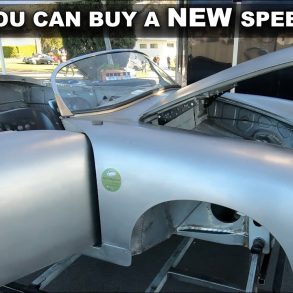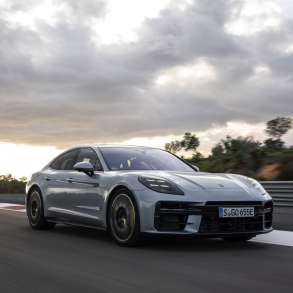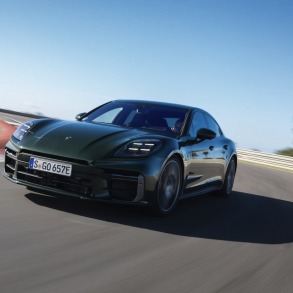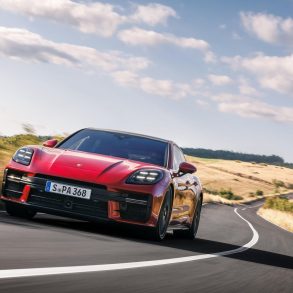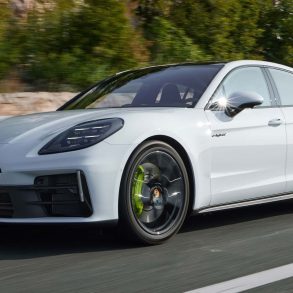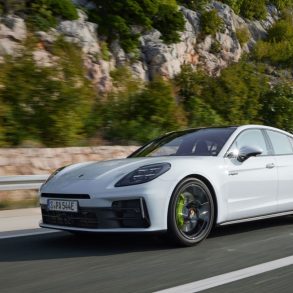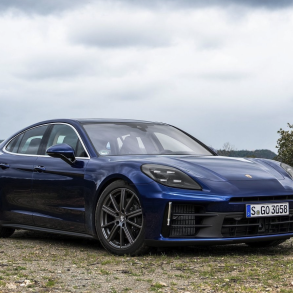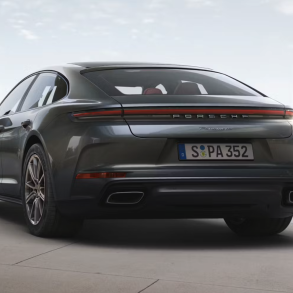2018 Porsche 919 Hybrid EVO (2018)
Premiere: 2018 April 9 at Spa-Francorchamps, Belgium / Achievements: 2018 Nürburgring Nordschleife lap record / 2018 Spa-Francorchamps lap record
On April 9, 2018, Porsche announced1 that its Le Mans-winning LMP1 car set a new lap record of 1:41.770 at the legendary Spa Francorchamps race track in Belgium, with Swiss racing driver Neel Jani behind the wheel. The previous record belonged to Lewis Hamilton’s Mercedes-AMG F1 car, which achieved pole position in the 2017 Belgian Grand Prix with a time that is 0.783 seconds slower than the Porsche.
With the car retiring after the 2017 LMP WEC season, the Porsche team decided to throw it a truly memorable send-off. Freed from any restrictions brought upon by strict regulations in the class it competed in, Porsche threw out the rulebook and established a new benchmark. Amongst the notable parting gifts was a significant horsepower bump, increasing the turbo V4 to 720 horsepower from 500 horsepower. Additionally, the electric motor received a 10% boost, now generating 440 horsepower. In total this gave the 919 a remarkable 1160 horsepower.
In order to fully utilize the overall 28% increase in horsepower, Porsche gave the car a significant facelift, adding active-aero pieces which can generate up to 53% more downforce than the previously shackled version. Higher performance Michelin tires and weight reduction were also part of the program, effectively birthing what would become an F1 destroyer.
Porsche has suggested that the party is just getting started, with plans to run the car at other famous tracks such as the Nürburgring Nordschleife, Brands Hatch, and Laguna Seca. We look forward to following the car’s progress as it continues its “919 Tribute Tour”.
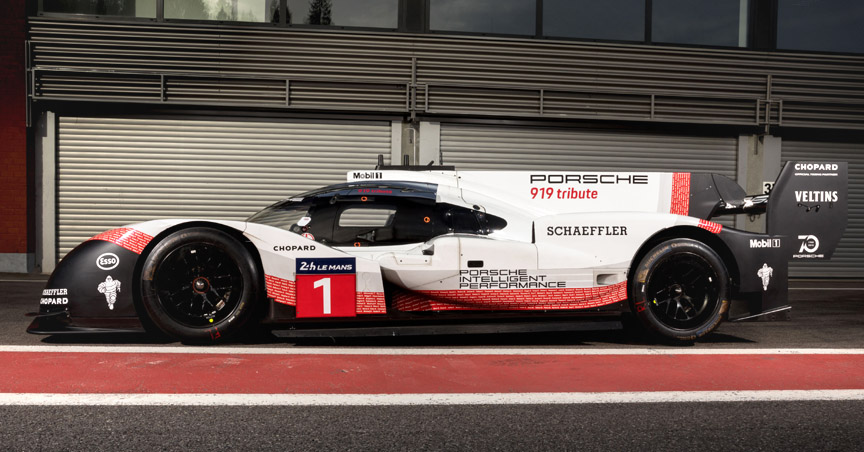
Porsche 919-18 Hybrid Evo Outlaw Record Car
- Internal combustion engine: 2.0V4 single-turbo, 529 kW/720 PS officially
- Electric motor: 324 kW/440 PS officially
- Peak system power: 853 kW/1160 PS
- Fuel tank: 62.3 L
- Length: 200″/5078 mm (WEC version was 183″/4650 mm)
- Weight without fuel: 849 kg/1872 lb
Porsche decided to withdraw from the World Endurance Championship after the 2017 season, while the 2018 version of the 919 was already half-way engineered. The work done was not thrown away, instead, the car’s potential was unleashed and put into test. Porsche called it 919 Evo, but it would be more appropriate to call it 919 Outlaw as it pumped out 853 kW peak power and therefore was not legal for any racing series.
On April 9, 2018, the 919 Hybrid Evo established a new track record at Spa-Francorchamps. Porsche works driver Neel Jani lapped the 4.35 mile/7.0 km long Belgian GP circuit in 1:41.770. Because of the Spa track being so long and fast, it is considered the second most interesting permanent race track in Europe after the Nürburgring Nordschleife. The previous Spa record 1:42.553 was set by Lewis Hamilton at the wheel of a Mercedes F1 W07 Hybrid on August 26, 2017. At his record run Jani achieved a top speed of 223 mph/359 km/h and an average speed of 152.6 mph/245.61 km/h. WOAH!!! This is insane! Ambient temperature was 11° C/52° F and track temperature was 13° C/55° F (ideal conditions for the record run).
Fritz Enzinger: “Today’s track record impressively proves the ultimate performance of the most innovative race car of its time. Our target was to show what the Porsche 919 Hybrid is able to do when we loosen the restrictions that normally come from the regulations.” The technical regulations from the FIA for the WEC and Le Mans successfully delivered close competition between the conceptually different class 1 Le Mans hybrid prototypes entered by Audi, Porsche and Toyota. As a consequence this never allowed the question – what would be the potential of the Porsche 919 Hybrid if it wasn’t chained by the limitations – to be answered.
Stephen Mitas was heading the project: “It was kind of an engineer’s dream come true for us. Having developed, improved and raced the car for four years, the guys had a very close relationship to it. We all knew, no matter how successful the 919 Hybrid was, it could never show its full abilities. Actually even the Evo version doesn’t fully exploit the technical potential. This time we were not limited by regulations but resources. It is a very satisfying feeling that what we’ve done to the car was enough to crack the Formula One record.”
To prepare the record car, the base was the 2017 world championship car. On top came developments that were prepared for the 2018 WEC but never raced after the end of 2017 withdrawal. The WEC efficiency regulations limited the energy from fuel using a fuel flow meter. Freed from these restrictions, equipped with an updated software but running the regular race fuel E20 (20% bio ethanol), the 919 Hybrid Evo’s 2-litre engine peaked at 529 kW. The amount of electric energy that was allowed to use in Spa at the WEC race in 2017 was 6.37 megajoule per lap, but on his record lap Neel Jani used everything the system could generate – 8.49 MJ (33% more).
The engineers also unchained the aerodynamics of the 919 Evo from the regulations. The new larger front diffuser now balances the new and very large rear wing, both of which have actively controlled drag reduction systems. The hydraulically operated systems trim the trailing edge of the front diffuser and open up the slot between the rear wing main plane and the flap respectively in order to increase the aerodynamic efficiency. Underneath the Evo the turning vanes and floor have been optimised with fixed height side skirts to increase the aerodynamic performance again as efficiently as possible. In total the aero modifications resulted in 53% more downforce and an increase in efficiency by 66% (compared to the 2017 Spa WEC qualifying). The Evo was fitted with individual braking power control on every wheel providing additional yaw control and the chassis was fitted with actively controlled lockout system. The power steering was adapted for the higher loads and stronger suspension wishbones front and rear were implemented. Everything that wasn’t needed for a single fast lap was removed: air conditioning, windscreen wiper, several sensors, electronic devices from race control, lights systems and the pneumatic jack system. Compared to the car in race trim, the dry weight was reduced by 39 kilograms to 849 kilograms.
Neel Jani: “The 919 Evo is brutally impressive. It is definitely the fastest car I ever drove. The grip level is at a fully new dimension for me, I couldn’t imagine this amount beforehand. The speed on which everything happens on a single lap with the 919 Evo is that fast that the demand on reaction speed is very different to what I was used to in the WEC. We are not only faster than the F1 pole from 2017. Today’s lap was twelve seconds faster compared to our WEC pole position from last year! We have had three very intense days at Spa. Today I knew on the very first lap in the morning that the car’s performance was super. The race engineers did a great job setting up the car and the Michelin tyres are sensational. A big thank you to Porsche for this experience.”
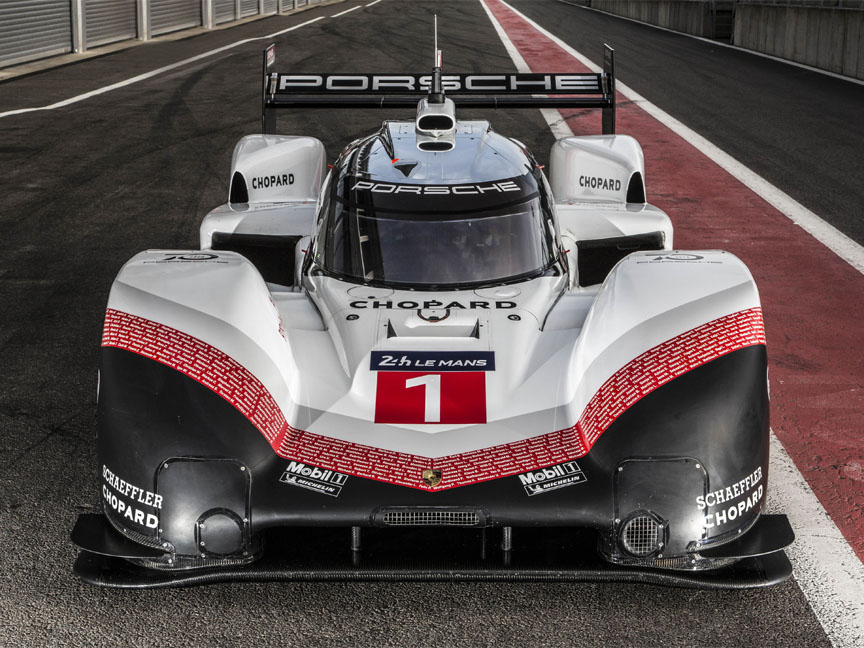
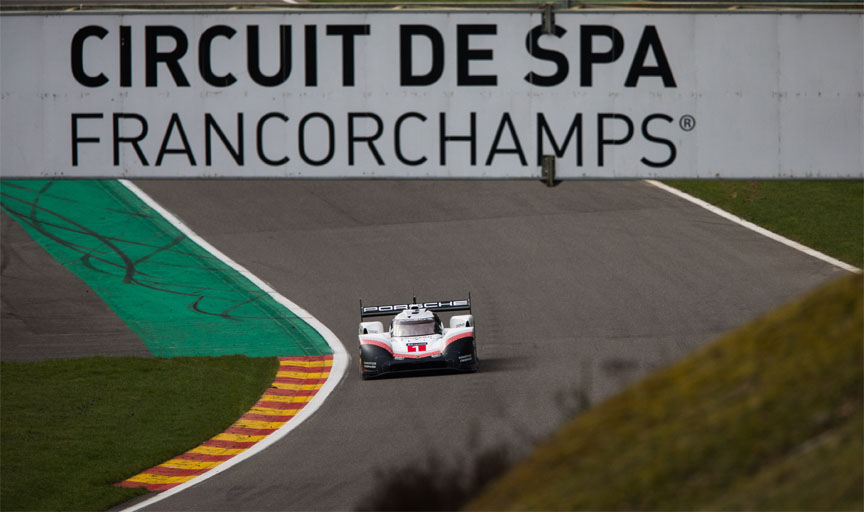
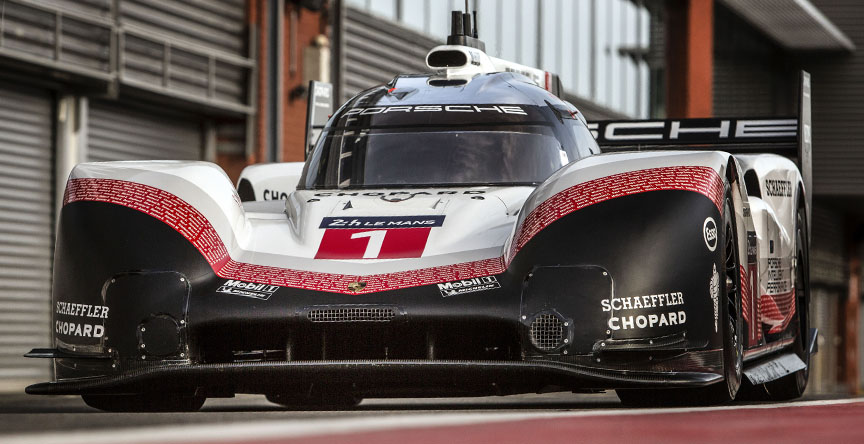
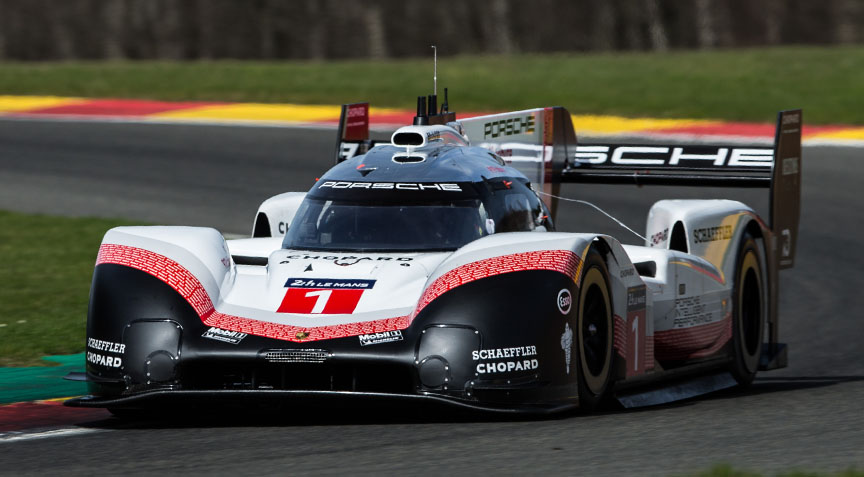
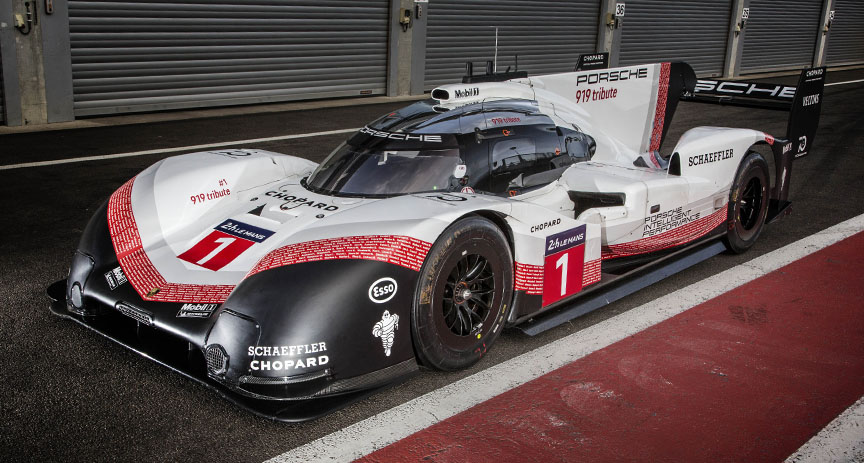
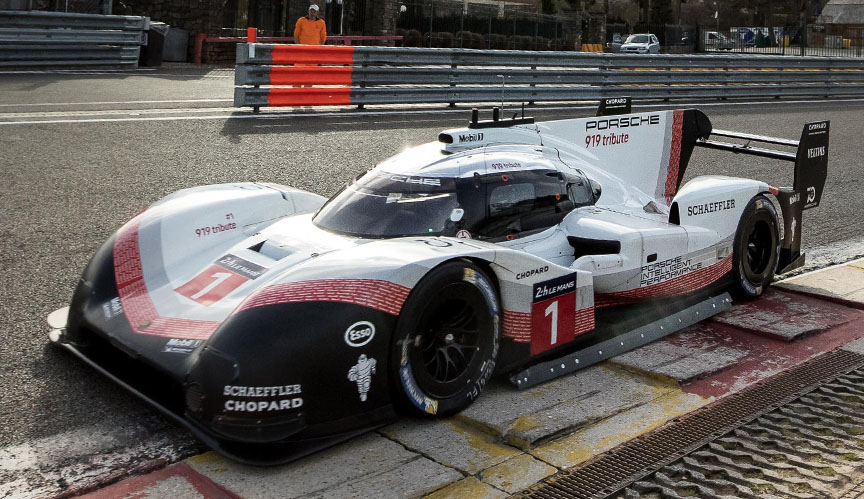
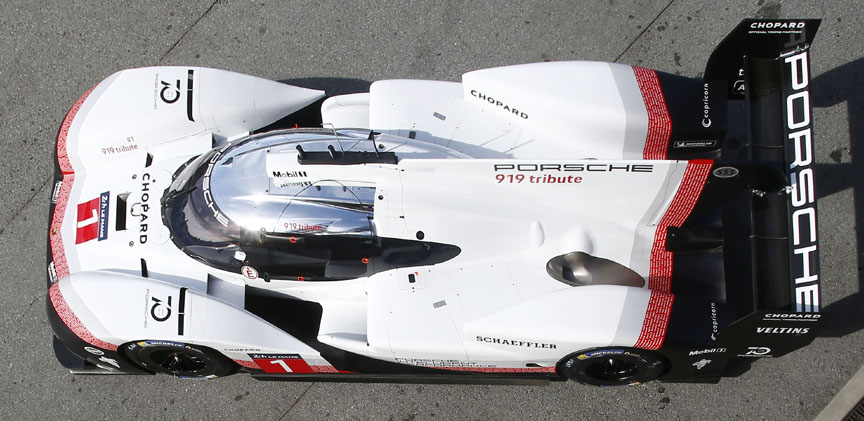
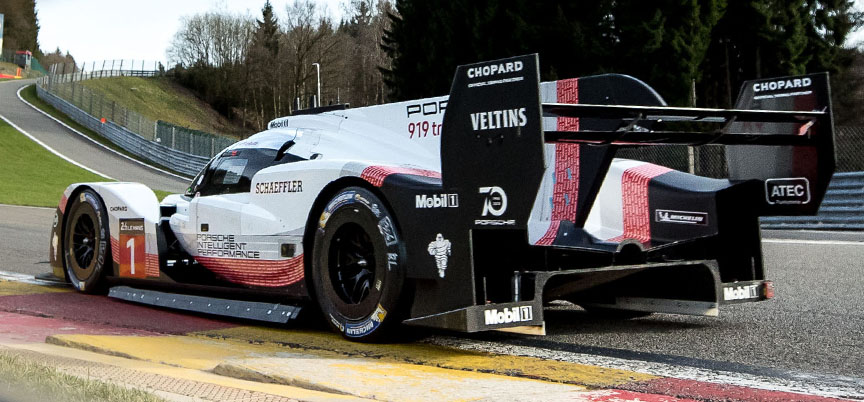
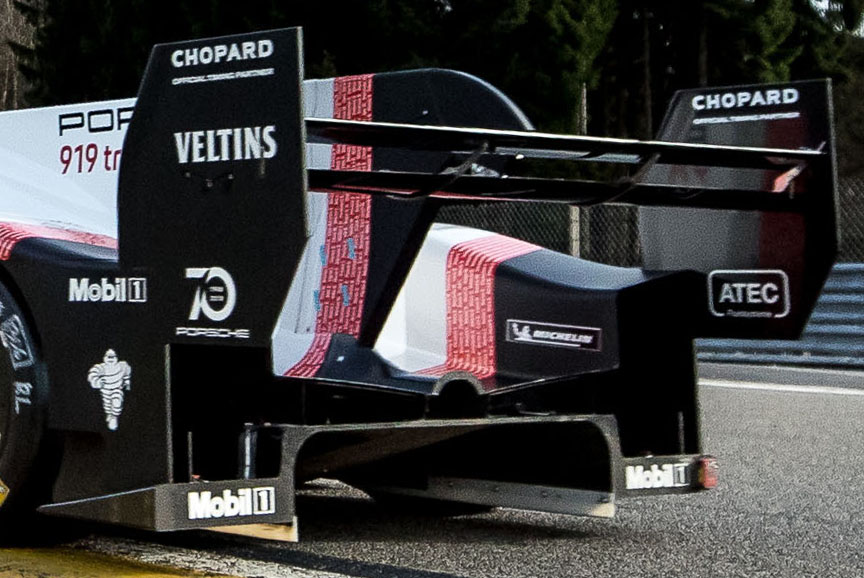
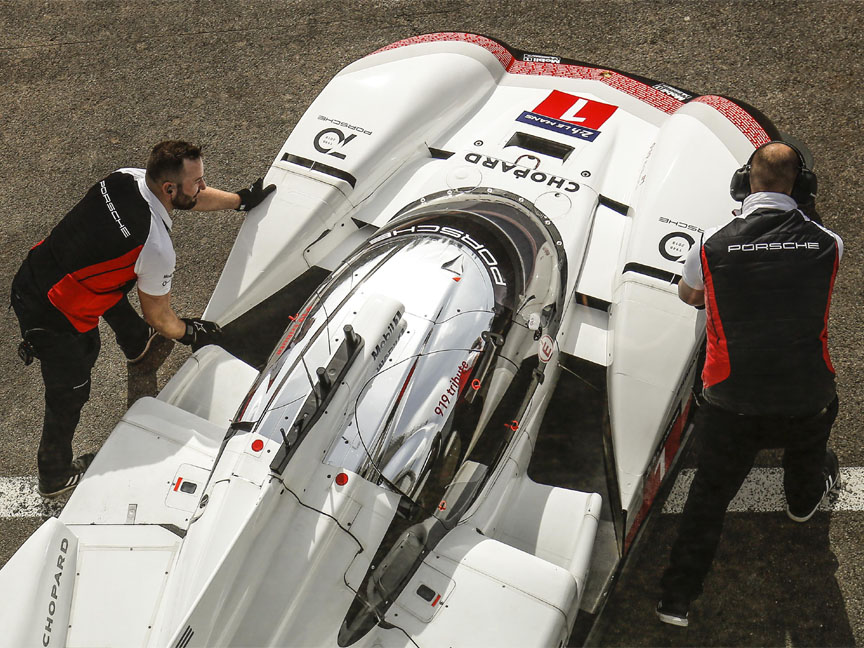
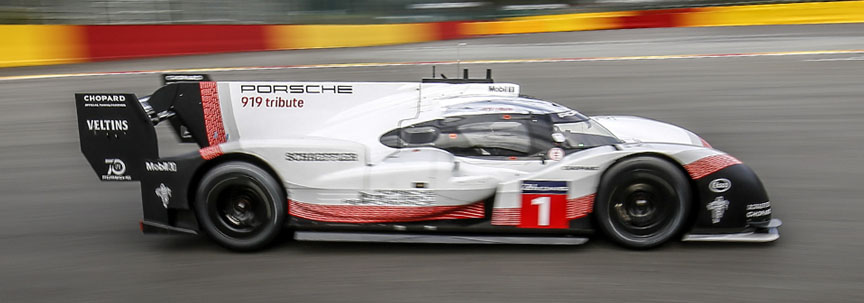
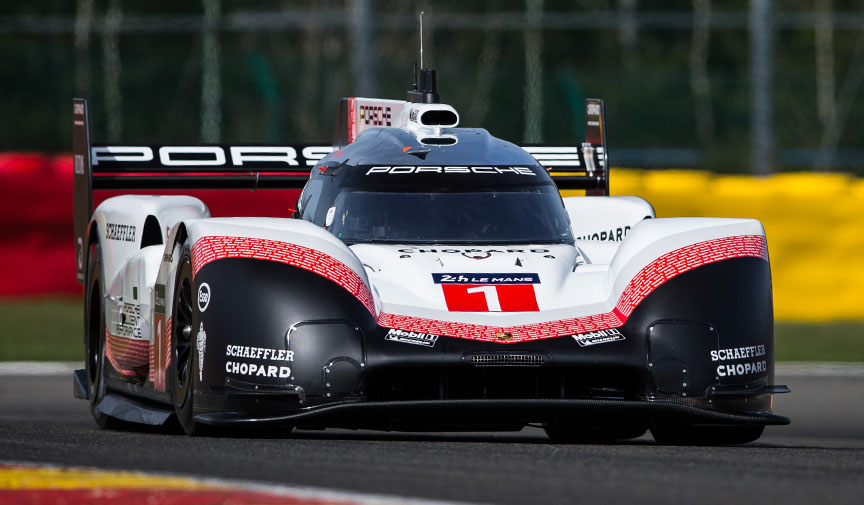
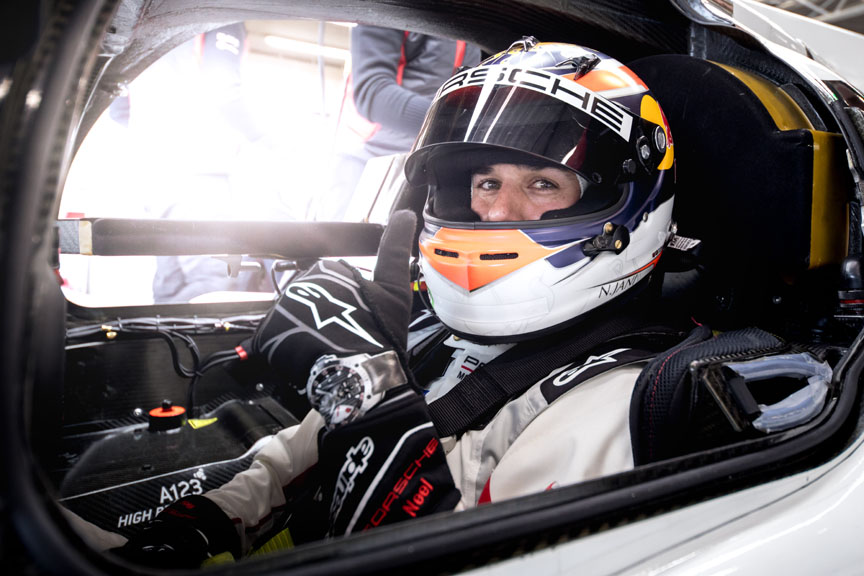
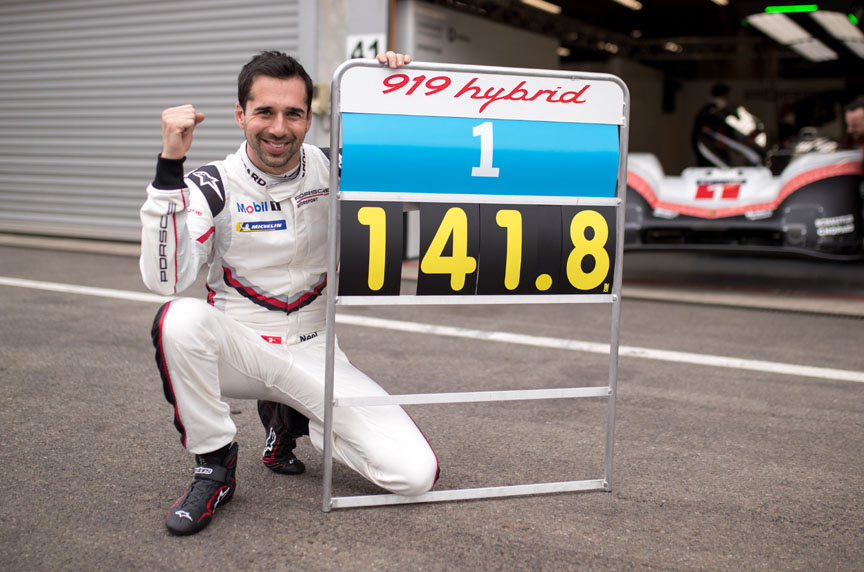
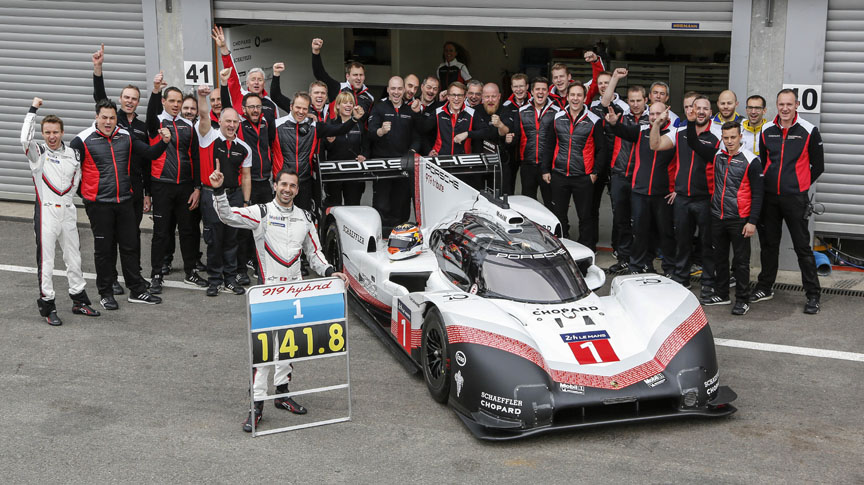
Porsche 956 and 919
Photoshooting at the Porsche’s Weissach test track: 956 (chassis number 956-005) and 919 Evo. The cars look really similar considering they are more than three decades apart. In 2018 on May 12, just before the start of the Nürburgring 24 hour race, the 956-005 and 919 Evo lapped the Ring for the pleasure of the spectators. Hans-Joachim Stuck drove the 956 and confessed after the lap: “I have to admit the right foot was really itching”.
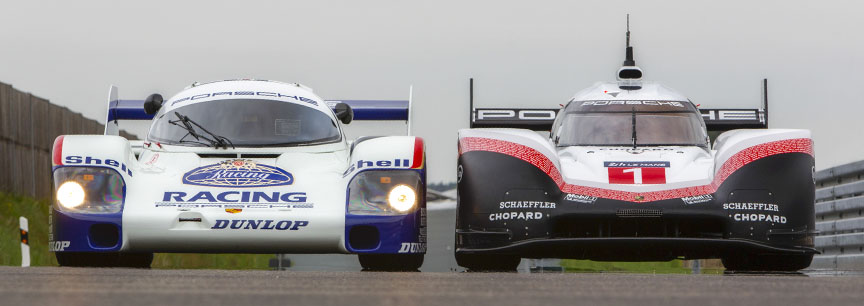
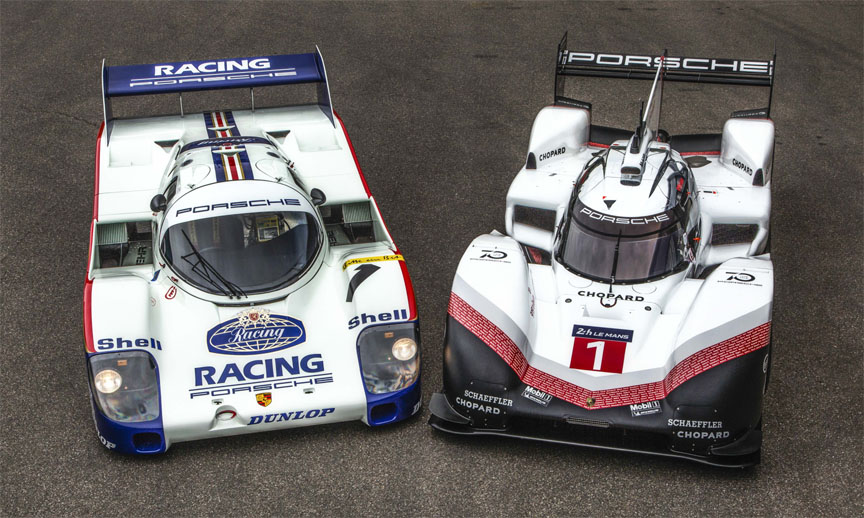
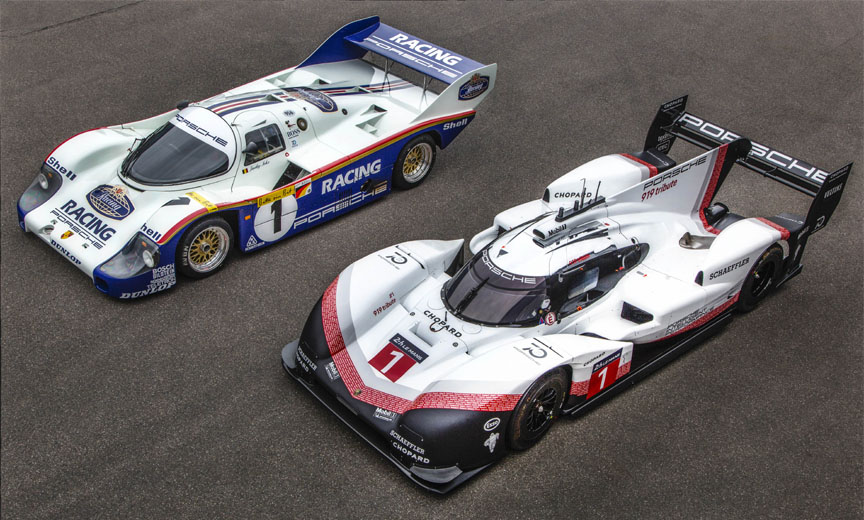
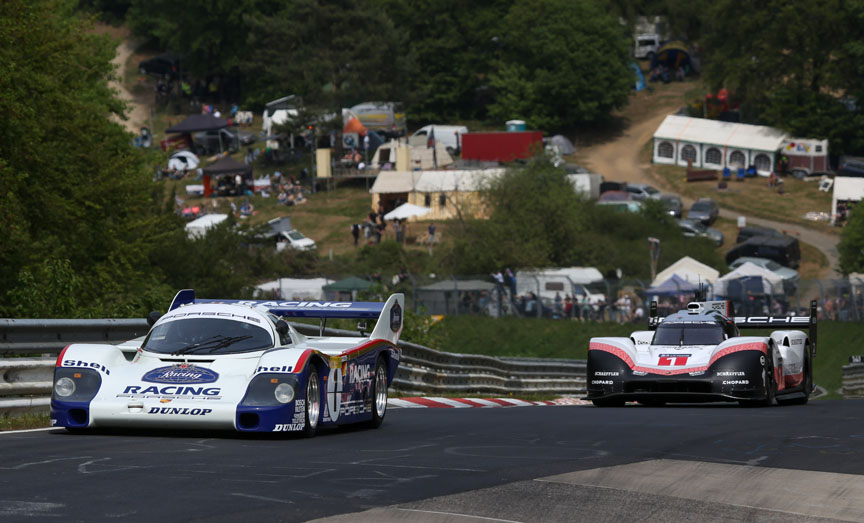
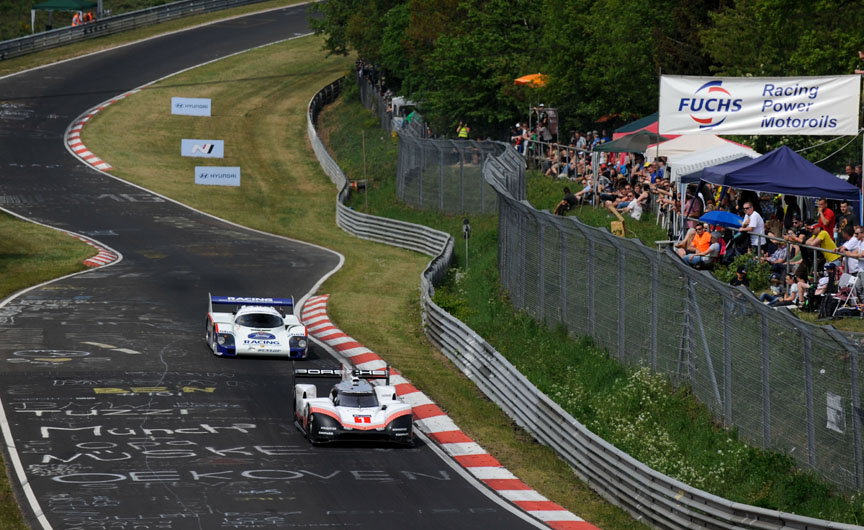
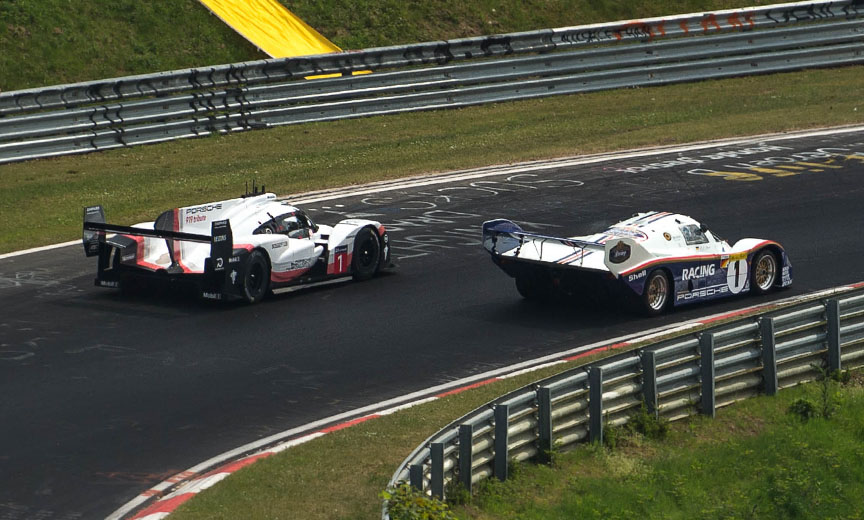
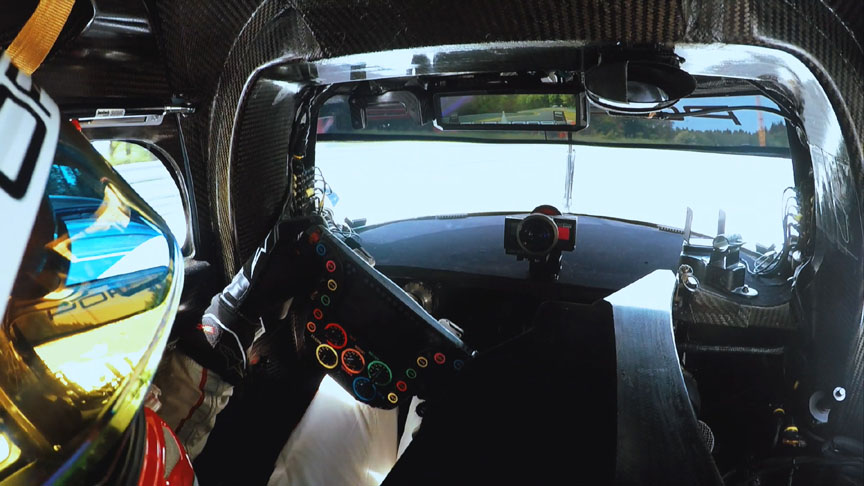
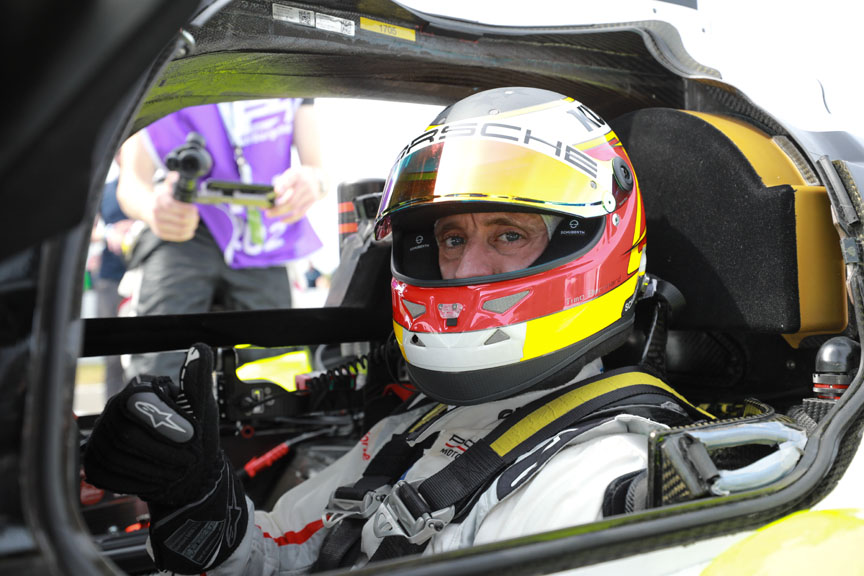
Nürburgring Nordschleife record 5:19.546
Porsche Motorsport made long preparations to set a new overall lap record at Nürburgring Nordschleife. The standing record was already 35 years old. A day before the 1983 Nürburgring 1000 km race, on May 28, Stefan Bellof drove his Porsche 956 at record speed in the qualification covering the then 20.832 km Nordschleife (Northern Loop) in only 6:11. The outlaw version of the 919 was created in 2018 to beat a few records. As a result, on June 29, 2018, Timo Bernhard managed to lap the 20.600 km Nordschleife in 5:19. It is a totally unreal lap time, but Stefan Bellof’s time is not worse if you consider it was made 35 years earlier with a car that had two times less power, it had to comply with the regulations, it had the tyre technology of the eighties, it had no traction control, no 4WD, a manual transmission and the track was slightly longer.
Timo Bernhard: “Thanks to the aerodynamic downforce, at sections I never imagined you can stay on full throttle. I’m pretty familiar with the Nordschleife. But today I got to learn it in a new way.” He emphasised: “For me Stefan Bellof is and remains a giant. Today my respect for his achievement with the technology available back then increased even more.”
